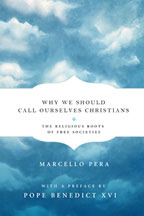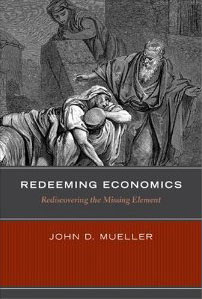Fr. Robert Sirico offers an engaging presentation of the moral foundation for the free market.  He helps us to see our economy, not as a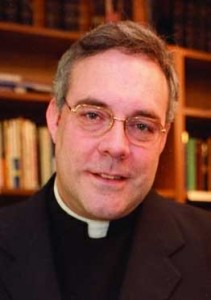 “mechanism” but rather as a dynamic of human relationship.  When this is done, basic principles found in Catholic Social Teaching can then be applied and used to redeem a system that can bring about the common good.  Many view the free market theory and policies as rationalization for the excess found in capitalism and fuel for the sins in the heart of some capitalists.  Fr. Sirico, doesn’t deny this reality, but instead helps us to see the goodness hidden beneath the distorting effects of moral failure, challenging us to bring the light of virtue into the system which can enhance the dignity of the human person and better the society as a whole.  An important and fascinating topic for our time, Fr. Sirico somehow manages to make a potentially dry subject compelling and relevant by sharing much from his own spiritual journey and life.  An excellent read…highly recommended to all.
“mechanism” but rather as a dynamic of human relationship.  When this is done, basic principles found in Catholic Social Teaching can then be applied and used to redeem a system that can bring about the common good.  Many view the free market theory and policies as rationalization for the excess found in capitalism and fuel for the sins in the heart of some capitalists.  Fr. Sirico, doesn’t deny this reality, but instead helps us to see the goodness hidden beneath the distorting effects of moral failure, challenging us to bring the light of virtue into the system which can enhance the dignity of the human person and better the society as a whole.  An important and fascinating topic for our time, Fr. Sirico somehow manages to make a potentially dry subject compelling and relevant by sharing much from his own spiritual journey and life.  An excellent read…highly recommended to all.
[powerpress]
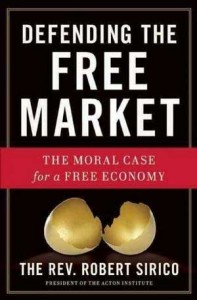 You can find the book here
You can find the book here
“I’ve been doing financial counseling and education for over two decades, and one thing that has always stood out to me is how much money is connected to every part of our lives, from relationships to politics to ministry. Money is never just about money; it’s always just part of the issue. That’s why I appreciate Father Robert Sirico’s ministry. Sure, he talks about money, but he also shows how all of these different aspects of our lives interact with and impact each other.”
—Dave Ramsey, New York Times best-selling author and nationally syndicated radio show host
Tags: acton institute, catholic, catholic podcast, catholic prayer, catholic social teaching, cathollc spirituality, economy, education, free market, radio, Robert Sirico
This entry was posted on Monday, June 4th, 2012 at 8:54 am
You can follow any responses to this entry through the RSS 2.0 feed.
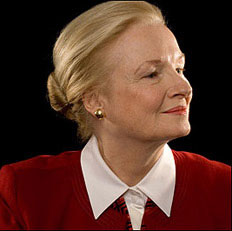
It was with great joy to be able to speak with Mary Ann Glendon about  “The Forum and the Tower: How Scholars and Politicians Have Imagined the World, from Plato to Eleanor Roosevelt”.  A fascinating book that chronicles not only the thoughts, but also the lives of  12 notable philosophers and/or statesmen throughout history.  The “and/or” is important, because not all can can successfully combine both.  In fact, only  two in this particular work, are found to be that complete “Philosopher Statesman”.  Why is that so?  Why is difficult for one who develops a theory to put it into practice?  And on personal level on my part, that this is one of the most enjoyable and engaging converstations I’ve been blessed to have in this particular “forum”.  We also discuss Blessed John Paul II and Pope Benedict XVI and their influence in today’s world.
Mary Ann Glendon is Learned Hand Professor of Law at Harvard Law School, and is a former United States Ambassador to the Vatican. She holds A.B., J.D., and M.C.L. degrees from the University of Chicago. In 2004, Pope John Paul II named her as the first woman to serve as President of the Pontifical Academy of Social Sciences.
[powerpress]
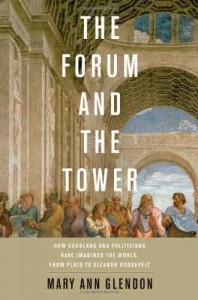 You can find the book here
You can find the book here
About the Book:
As Aristotle noted long ago, two very different and sometimes incompatible ways of life—the political and the philosophical—exert a powerful pull on the ambitious and talented members of any society. Mary Ann Glendon, who teaches at Harvard Law School, says that she sees this double attraction in her students. Some go into politics, but many turn away, fearful of the compromises and corruptions of power. Such students may go on to become teachers and scholars, but they never quite give up on the idea of “making a difference†in the wider, public world, even if they aren’t quite sure how to do it. Ms. Glendon’s The Forum and the Tower profiles 12 figures in Western history who struggled—not always successfully—with the conflict between an active life and a contemplative one, between ‘life in the public forum and life in the ivory tower.’… The Forum and the Tower is a wise exploration of the eternal tension between action and thought.
— Brian C. Anderson, The Wall Street Journal
Tags: catholic, catholic podcast, catholic prayer, catholic social teaching, cathollc spirituality, Harvard Law School, joy, Mary Ann Glendon, work
This entry was posted on Friday, May 18th, 2012 at 6:44 am
You can follow any responses to this entry through the RSS 2.0 feed.
It was an honor to have a conversation with Marcello Pera,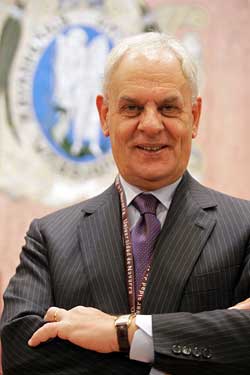 who  served as president of the Italian Senate from 2001 to 2006 and who now teaches political philosophy at the Pontifical Lateran University in Rome.  We discussed his book “Why We Should Call Ourselves Christians: The Religious Roots of Free Societies.  He maintains “that the very ideas on which liberal societies are based and by which they can be justified—the dignity of the human person, the moral priority of the individual, the view that man is a “crooked timber†inclined to prevarication, the limited confidence in the power of the state to render him virtuous—are distinctively Christian or, more precisely, Judeo-Christian ideas. Take them away and the open society will collapse.”  A  fascinating insight from a European viewpoint why America has succeeded in the past and the danger it faces in the future.
who  served as president of the Italian Senate from 2001 to 2006 and who now teaches political philosophy at the Pontifical Lateran University in Rome.  We discussed his book “Why We Should Call Ourselves Christians: The Religious Roots of Free Societies.  He maintains “that the very ideas on which liberal societies are based and by which they can be justified—the dignity of the human person, the moral priority of the individual, the view that man is a “crooked timber†inclined to prevarication, the limited confidence in the power of the state to render him virtuous—are distinctively Christian or, more precisely, Judeo-Christian ideas. Take them away and the open society will collapse.”  A  fascinating insight from a European viewpoint why America has succeeded in the past and the danger it faces in the future.
[powerpress]
 “The challenges of our particular historical momentâ€, as Pope Benedict XVI calls them in the Preface to the book, can be faced only if we stress the historical and conceptual link between Christianity and free society.
Tags: catholic, catholic podcast, catholic prayer, cathollc spirituality
This entry was posted on Tuesday, November 29th, 2011 at 6:15 am
You can follow any responses to this entry through the RSS 2.0 feed.
“Redeeming Economics: Rediscovering the Missing Element”, boy do we need this now! John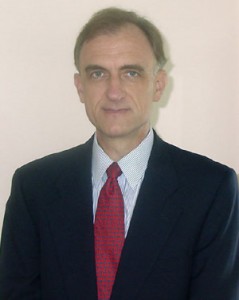 Mueller, of the Ethics and Public Policy Center, does an extraordinary job of pointing out what we are missing in all the discussions about economics…the fundamental productive unit – the family.  He helps us to leap forward by looking backwards, by looking at the error in Adam Smith’s theory which has had no way to account for a fundamental aspect of human experience: the social relationships that define us, the loves (and hates) that motivate and distinguish us as persons.
Mueller, of the Ethics and Public Policy Center, does an extraordinary job of pointing out what we are missing in all the discussions about economics…the fundamental productive unit – the family.  He helps us to leap forward by looking backwards, by looking at the error in Adam Smith’s theory which has had no way to account for a fundamental aspect of human experience: the social relationships that define us, the loves (and hates) that motivate and distinguish us as persons.
In trying to reduce human behavior to mere exchanges, modern economists have lost sight of how these essential motivations are expressed: as gifts (or their opposite, crimes). Mueller makes economics whole again, masterfully reapplying economic thought as articulated by Aristotle, Augustine, and Aquinas.
Contrarian and compelling, Redeeming Economics covers everything from unemployment, to inflation, to the economics of parenthood, to the greatest geopolitical challenge facing the United States, to flaws in the mega-bestseller Freakonomics, to the author’s illuminating exchange with the controversial philosopher Peter Singer.
Learn more about the book here
Tags: Adam Smith, catholic, catholic podcast, catholic prayer, cathollc spirituality, economics, John Mueller
This entry was posted on Tuesday, July 26th, 2011 at 5:16 pm
You can follow any responses to this entry through the RSS 2.0 feed.

